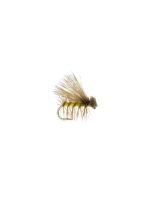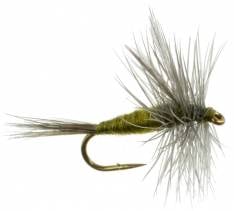Welcome to the big leagues, folks! If you’re here, you’re not just looking to bait a hook and drop it into a pond. You’re looking for the finesse and precision of an art that only the truly passionate take up – fly fishing. And you’ve chosen the Holy Grail of destinations – the Henry’s Fork in Idaho. You’re about to get schooled in everything from the river’s biography, its best fishing spots and access points, to the golden rules of fly selection and how to rig your rod. And yes, we’ll also talk about the local laws, because we want you to enjoy the experience without looking over your shoulder for the ranger. Ready? Let’s dive in.
The Legendary Henry’s Fork – River of Riches
Henry’s Fork, a tributary of the Snake River, is a fly fisher’s dream – teeming with trout and offering a diverse range of fishing environments. Starting in the mountains of eastern Idaho, this lush waterway, loaded with Rainbow, Brown, and Cutthroat Trout, is a fisherman’s paradise. But hold your horses – timing is everything. The river fishes best from May to October, but if you want to wrestle with the big boys, head out in the late spring and early summer when the hatch is in full swing.
Your River Roadmap – Access Points and Local Guide Shops
| Access Point | How to Get There | Local Guide Shop |
|---|---|---|
| Harriman State Park | 6 miles north of Ashton on Highway 20 | TroutHunter |
| Mesa Falls | 13 miles northeast of Ashton on Mesa Falls Scenic Byway | The Henry’s Fork Anglers |
| Box Canyon | 4 miles northeast of Last Chance on Fisherman Drive | Henry’s Fork Anglers |
| Riverside Campground | 8 miles south of Island Park on Highway 20 | TroutHunter |
| St. Anthony Sand Dunes | 10 miles northeast of St. Anthony on East Road | The Fly Shop |
The Path Less Traveled – Fishing with Low Traffic
Want a piece of the river all to yourself? Then the Upper Henry’s Fork, around Big Springs, is your best bet. Less frequented by anglers, it gives you space to master your cast and, more importantly, fish in peace.
Hotspot Alert – The Busiest Fishing Spot
When it comes to the most popular spot, the Railroad Ranch section in Harriman State Park takes the cake. Sure, it gets busy, but there’s a reason all those anglers flock there. The fishing is off the charts!
Gear Up – Ideal Rod and Reel Selection
Fly fishing in Henry’s Fork demands a versatile rod and reel setup. For most situations, a 9-foot, 5 or 6-weight rod will be your weapon of choice, paired with a matching reel loaded with a weight-forward floating line.
Match the Hatch – Fly Selections for the Year
| Time of Year | Fly Selection |
|---|---|
| Spring | Blue Winged Olive, Mother’s Day Caddis |
| Summer | Pale Morning Dun, Green Drake, Salmonfly |
| Autumn | October Caddis, Mahogany Dun |
| Winter | Midge, Winter Stonefly |
Master the Craft – Techniques on How to Fly Fish the River
To fly fish Henry’s Fork like a pro, get these techniques down:
- Dry Fly Fishing – Cast upstream and let your fly float naturally downstream. It’s a classic move and works great in Henry’s Fork.
- Nymphing – Use a weighted nymph under an indicator. Cast upstream and let it drift, mimicking a nymph naturally moving in the current.
- Streamer Fishing – In the fall, try casting and stripping a streamer for those aggressive, big trout.
Rigging Rules – Rigging Your Rod
Rigging for fly fishing involves a fly line, leader, and fly. For Henry’s Fork, opt for a 4 to 6 weight fly line and a 9 to 12 foot leader with a 4X to 6X tippet. Attach the tippet to the leader, then tie your chosen fly to the tippet. When nymphing, aim for a depth of 1.5 to 2 times the water depth.
Know Before You Go – Local Laws and Restrictions
Remember, ignorance of the law is no excuse. Idaho requires all anglers over 14 to have a fishing license, and there are restrictions on the size and quantity of trout you can keep. Check the Idaho Department of Fish and Game website for the latest regulations.
Conquer the Henry’s Fork
You’re ready now, armed with all the know-how on how to fly fish the legendary Henry’s Fork. Remember, this isn’t just a sport; it’s an art. An art that brings you closer to nature. So take it slow, savor every moment, and respect the river. Good luck, angler. Now go make some waves!

